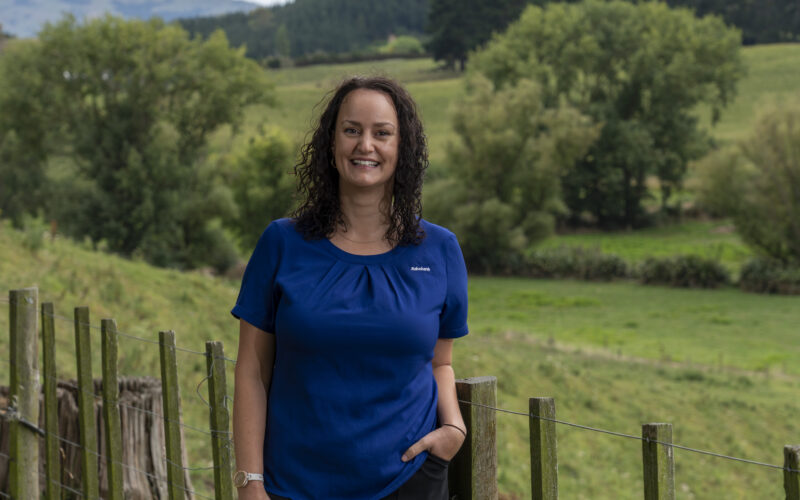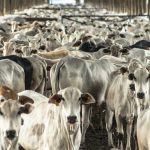
Weak supply from major production countries is expected to continue, supporting higher commodity prices.
Rabobank has lifted its milk price forecast to $8.60 kg/MS for the 2024/25 New Zealand dairy season, on the back of weak global milk supply.
In its Q3 Global Dairy Quarterly report, Rabobank says milk production from the main global export regions has remained elusive over recent years.
Since the second half of 2021, combined milk production from the Big-7 dairy export regions – the European Union, United State, New Zealand, Australia, Brazil, Argentina and Uruguay – has shown growth in only three quarters.
“For the 2024 year, this trend is expected to continue with production growth from the Big-7 forecast at a very modest +0.14% year on year,” report lead author, senior agricultural analyst Emma Higgins, said.
“This weak milk supply growth has helped support steady to higher dairy commodity prices in 2024, translating into better milk cheques for most dairy producers. In response to improved margins thanks to cheaper feed prices, farmer sentiment is on the up – or at least steady – in the majority of key production regions.
“Our initial expectation for the full 2025 year is for production to shift upwards on the back of this positive momentum, with a lift of 0.65% year on year from the Big-7 forecast. If delivered, this would see global export milk supply above the five-year average growth rate – a rate that should be manageable for dairy markets.”
On the demand side, the report says, market settings remain mixed.
Higgins said at a retail level, deflation continues to occur in supermarket aisles in South America, the United States and in most of the EU.
“Nonetheless, gasps are still audible in the chiller aisles when comparing what the ‘new normal’ prices look like with pre-covid days,” Higgins said.
Chinese dairy demand continues to be soft and Rabobank recently revised its consumption estimations lower for 2024. As the market continues to recalibrate, it is anticipated China’s net imports will be 12% lower in 2024 year-on-year. Skim milk powder import volumes are likely to bear the brunt of the adjustment, dropping by up to 30% compared to 2023 levels.
Despite China’s pull-back, Higgins said, global dairy trade through May was largely positive.
“Global trade of cheese, whey-derived products and whole milk powder rose in May. However, there were sizeable falls in global skim milk powder (SMP) exports to the two largest markets, China and Mexico,” she said.
“Fortunately, increased trade to Algeria and southeast Asia cut the deficit in half, leaving SMP exports trailing the prior year by 5%. Limited supply and lofty prices accounted for a small decline in butterfat exports.”
With broad-based demand likely to support commodity prices for the remainder of the season, Higgins said, the bank had revised its New Zealand milk price forecast for the current season up by 20 cents kg/MS to $8.60 kg/MS for the 2024/25 season.
“And at this level, the forecast farmgate milk price is at or above where national break-even milk production costs are likely to sit for the 2024/25 season.”
Higgins said global supply and demand are now broadly in balance and markets are likely to remain “steady as she goes” in the near-term as exporting regions take time to lift production.
Rocketing power prices and uncertainty about generating more are keeping many people up at night, but Mike Casey reckons farmers have everything they need to power up right now. The chief executive of Rewiring Aotearoa has transformed his cherry orchard into a solar powered operation and he reckons every farmer should do the same.
A new report from Our Land and Water that suggests our passion for pines will hobble the sheep and beef sector has Toby Williams from Federated Farmers concerned. He says the independent research backs up what Feds has been saying for some time and he’s urging for regulatory reform to give high country farmers some assurance.
Reporter Gerhard Uys checks in to give an update on the dry conditions in North Canterbury. Farmers have been emptying the stores of supplementary feed and really need some rain to recharge the land. Another worry is that low groundwater levels could mean restrictions on irrigation being implemented earlier than usual this year.
You can now read the most important #news on #eDairyNews #Whatsapp channels!!!
🇺🇸 eDairy News INGLÊS: https://whatsapp.com/channel/0029VaKsjzGDTkJyIN6hcP1K

























